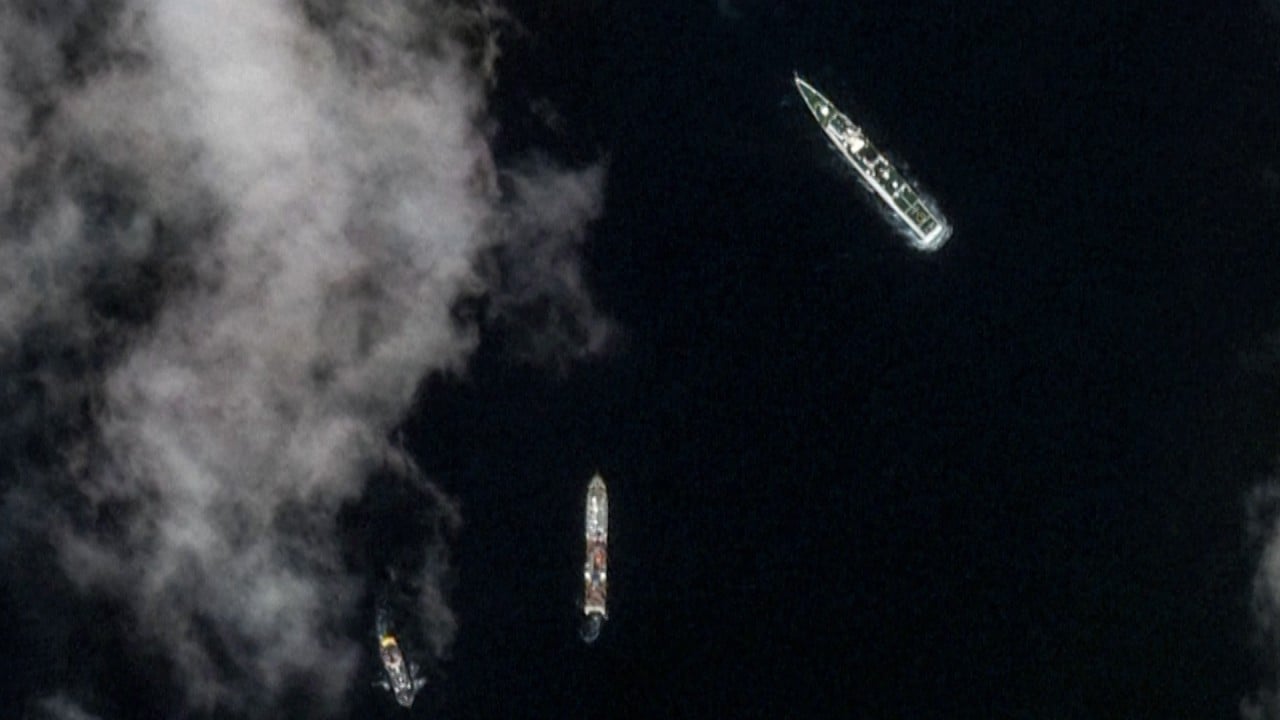Malaya’s remarks came a day after the Philippines accused China’s coastguard of harassing, blocking and firing water cannon at Manila’s vessels carrying out a routine resupply mission for Filipino troops stationed at Second Thomas Shoal in the South China Sea.
The actions of China coastguard were “provocative,” illegal” and “unbecoming of a coastguard officer,” Malaya told a press conference.
Philippines can’t deny ‘shared DNA’ with China even as sea row sours ties: Marcos
Philippines can’t deny ‘shared DNA’ with China even as sea row sours ties: Marcos
The Philippine foreign ministry said it had summoned China’s deputy chief of mission in Manila on Tuesday to convey its protest and to demand that Chinese vessels immediately leave the vicinity of the Second Thomas Shoal, which Manila calls Ayungin.
“China’s interference with the Philippines’ routine and lawful activities in its own exclusive economic zone is unacceptable,” the ministry said in a statement. “China’s actions in Ayungin Shoal infringes upon the Philippines’ sovereign rights and jurisdiction.”
China laid the blame on Manila, saying Philippine ships had illegally intruded into waters near the Second Thomas Shoal – which it calls Renai Reef – so it had to take control measures.
Philippine Defence Secretary Gilberto Teodoro said on Wednesday that China’s actions were “patently illegal and downright uncivilised”.
The Chinese action was also condemned by the United States, the Philippines’ defence treaty ally.
State Department spokesperson Matthew Miller said the actions were “provocative” and showed “a reckless disregard by the PRC for the safety of Filipinos and also for international law”, referring to the People’s Republic of China.
Miller, at a press briefing, said the US-Philippines Mutual Defence Treaty, which requires Washington to support Manila in the event of an attack, extends to armed attacks on Philippine vessels anywhere in the South China Sea, but declined to say whether the treaty could be triggered by the latest incident.
“I will just say that the United States stands with our Philippine allies in the face of these dangerous and unlawful actions,” Miller said.
Philippine President Ferdinand Marcos Jnr said on Wednesday that the recent collision of Philippine and Chinese vessels in the South China Sea is not the time or reason to invoke the treaty.
All countries should refrain from unilateral actions in the South China Sea that endanger the disputed area’s peace, security and stability, Australia and the Association of Southeast Asian Nations (Asean) said in a joint statement at the conclusion of a three-day summit in Melbourne on Wednesday.
“I am very concerned and Australia is concerned about any unsafe and destabilising behaviour in the South China Sea,” Australian Prime Minister Anthony Albanese said.
French ‘Spider-Man’ scales GT tower to support Philippines’ South China Sea claims
French ‘Spider-Man’ scales GT tower to support Philippines’ South China Sea claims
Meanwhile, Beijing on Wednesday accused the US of using the Philippines as a “pawn” in the South China Sea.
“China urges the United States not to use the Philippines as a pawn to stir up trouble in the South China Sea. The Philippines should not let itself be at the mercy of the United States,” foreign ministry spokeswoman Mao Ning told reporters.
The shoal is home to a small number of Filipino troops stationed on a rusting warship which Manila grounded there in 1999 to reinforce sovereignty claims.
China claims almost the entire South China Sea, which includes the Second Thomas Shoal, and has deployed vessels to patrol the disputed atoll which lies within the Philippines’ exclusive economic zone (EEZ).
Tuesday’s incident was the latest in a series of maritime run-ins between the Philippines and China, which have been locked in a territorial dispute in the South China Sea despite a 2016 ruling by the Permanent Court of Arbitration which found that China’s claims had no legal basis. Beijing rejects that ruling.















